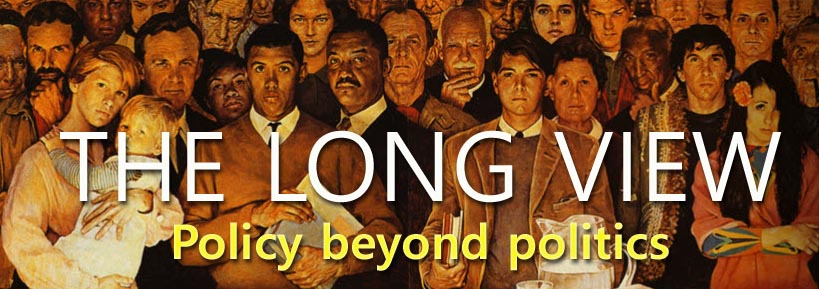Just days ahead of a pivotal parliamentary election, a new terrorist-inspired stabbing at the London bridge brings to the front page what has been behind the growing momentum for Brexit.
It is clear that for most UK voters the reality of "Londonistan" -as the growingly insulated and non-integrated fundamentalist enclaves are called in London- is one of the key reasons for breaking with the European Union "Schengen" immigration policies.
The unintended -and unattended- effects of what in practice is an "open- and cross- border" policy that allows low-income Muslim and Eastern European cheap labor workers to establish in the UK has been a national uproar for two clear reasons: economic and cultural.
Love's Labor Lost I: it's the economy, again.
Attracted by the availability of welfare state serviced, low-income migrants have overwhelmed the resources of the healthcare and housing systems and crowded-out low income workers who feel betrayed by their traditional Labor union party which they see in cahoots with "anywhere" mobile elites traditionally favoring globalization and gentrification.
Love's Labor Lost II: the culture clash.
On top of the economic conflict, a sizable part of the UK immigration adds a couple of cultural explosive deal-breakers: anti-Western religious indoctrination and beliefs and islamic fundamentalist terrorism.
The latest stabbings follow a string of attacks that started with the 2005 London bombings but more dramatically spread into the civil society with stabbings and violence in almost all major cities where Muslim fundamentalist immigrants settled for jobs without proper cultural assimilation. "Londonistan" ghettos grew out of a toxic combination of anti-Western fundamentalist indoctrination and "multi-cultural", "salad-bowl" progressive policies.
The result is in full display: a turn against the EU and for Brexit and a deep and longer-lasting social conflict that will traumatize UK for years to come.
Like in Shakespeare's high comedy, it's time for getting wisdom out of humiliation and for abandoning ideological posturing.
















